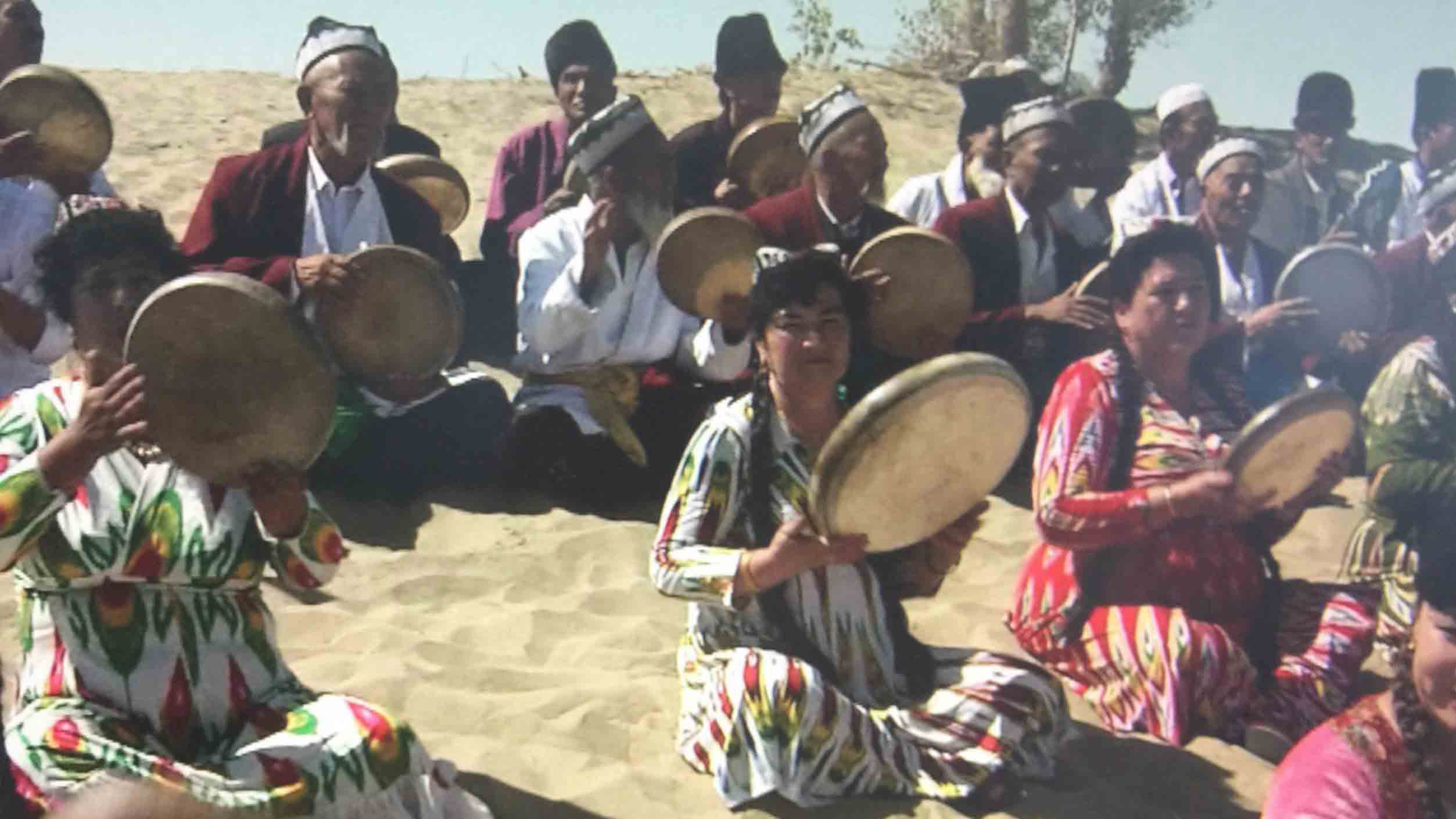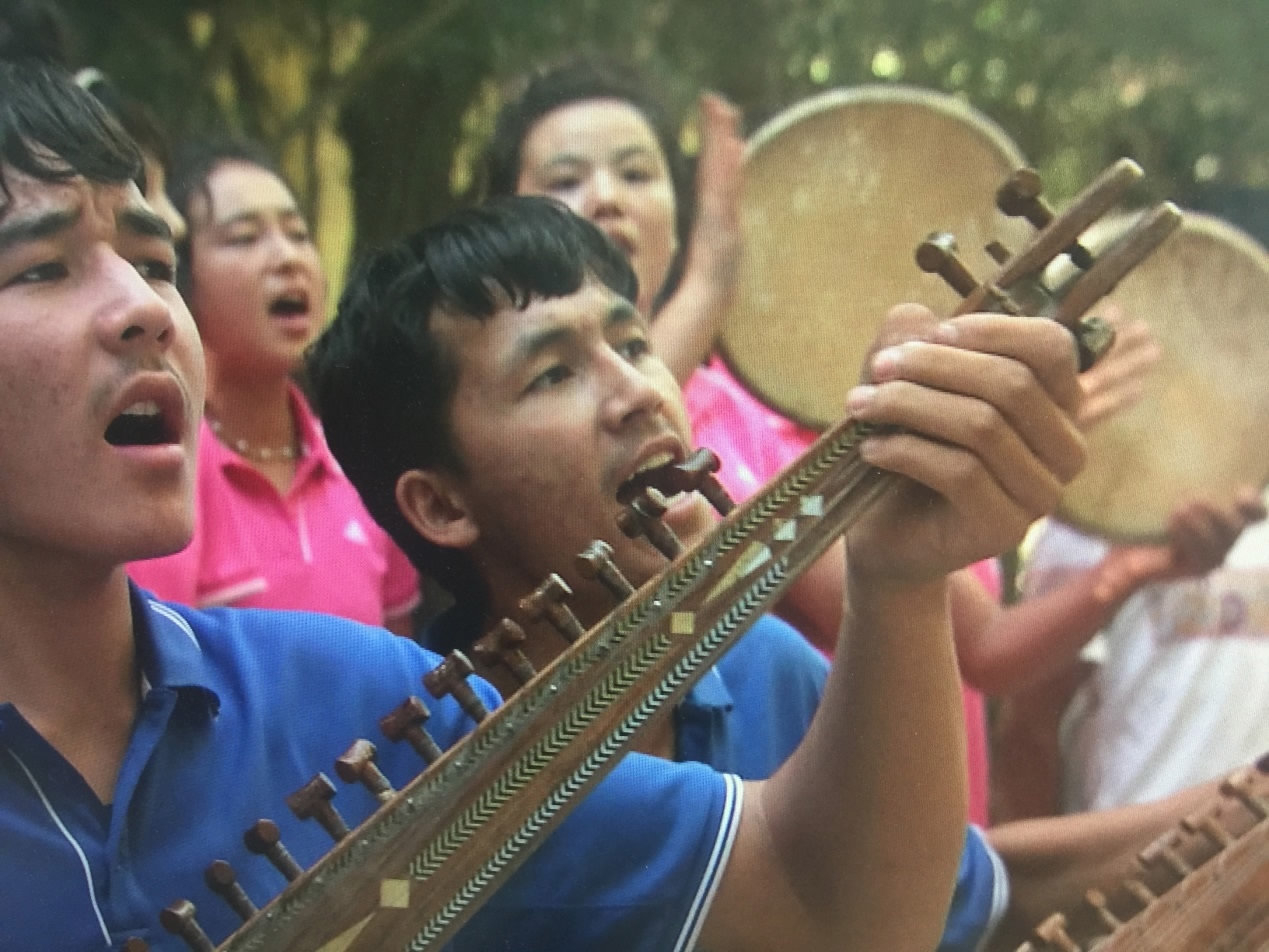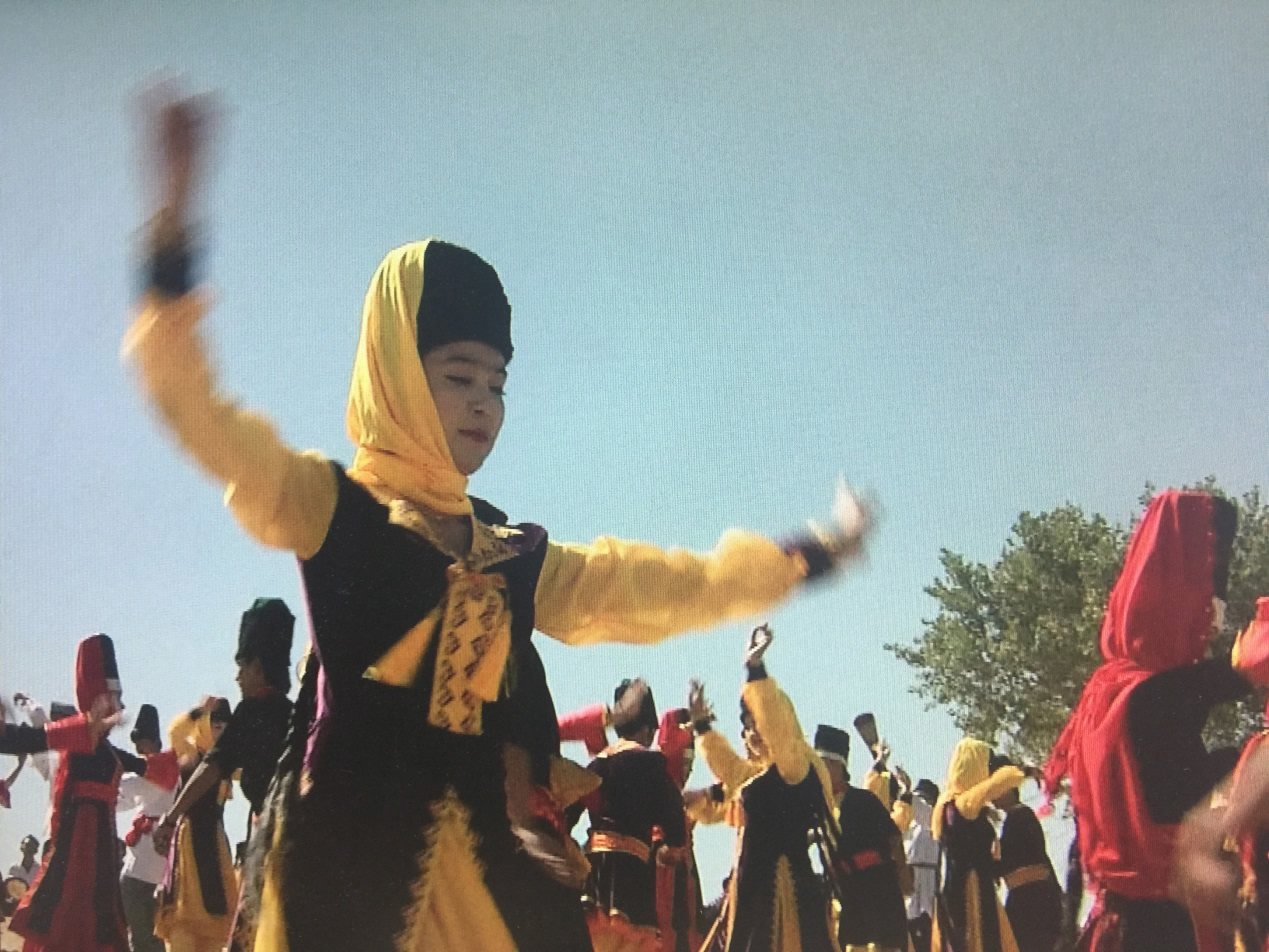
Culture
19:10, 16-Aug-2017
Dolan Muqam music tradition thrives among local Uygurs
By Wang Wei

In northwest China's Xinjiang, centuries-old Muqam music is thriving among local Uygur communities.
The music and dance tradition was included on the UNESCO heritage list in 2005, and has since enjoyed government support and reasserted itself across the Xinjiang Uygur Autonomous Region.
Nur Memet has been teaching Muqam music for ten years and has shared the tradition with hundreds of students at the Makit County Senior Middle School.
Memet started playing music in her early teens, learning from old folk musicians. After high school, she received formal training at the Xinjiang Music Conservatory.
After graduation, she was offered a job at a dance company in Urumqi, the region’s capital. But she chose to return to her remote hometown in Kashgar where she could teach Muqam.
"I returned so that I could follow my dream, which is to introduce Dolan Muqam music to more people," she said.

Local residents play Muqam music. /CGTN Photo
Local residents play Muqam music. /CGTN Photo
Memet is convinced the future of Muqam music depends on the interest of young people.
Besides the students at her school, she has also found an apt pupil in her own daughter. From being immersed in the music since she was a toddler, the young girl has fallen in love with the tradition, especially its singing and dancing components.
The word Muqam derives from Arabic and in the Uygur language it used to mean norms and gathering, but now means classical music.
Muqam music first took shape nearly a thousand years ago during the Islamic Golden Age, and its spread was aided by the Silk Road trade network.
Today it is found in 19 countries and regions, mainly in central and southern Asia, the Middle East and North Africa.
In 2005, the Uygur's Twelve Muqam cycle of music was included on UNESCO’s Intangible Cultural Heritage List.
Xinjiang’s western oases are also home to Dolan Muqam, a distinctive tradition popular among local herders and farmers.
Known for its rugged and muscular temperament, Dolan Muqam combines dancing, singing and instrumental music. It has been passed down from generation to generation as a largely oral tradition.

Local residents practice dancing with Muqam music. /CGTN Photo
Local residents practice dancing with Muqam music. /CGTN Photo
In Makit county, regarded as the birthplace of Dolan Muqam, live the Hasan brothers. The 76-year-old twins are the fourth generation of a local Muqam family.
They learned singing and how to play instruments from their father and grandfather, and can perform all the nine surviving suites in the Dolan school. They've also instructed nearly 200 Muqam musicians in Makit.
Designated the inheritors of the Dolan Muqam cultural heritage, the brothers have tried to introduce the Uygur music to a wider audience over the past decade.
Hasan is a Muqam musician. He said it has been 66 years, since they received training in Muqam music.
"We have performed Muqam music in seven foreign countries. Although we couldn’t speak their languages, we were always applauded after our performances,” said Hasan.

Local residents perform to Muqam music. /CGTN Photo
Local residents perform to Muqam music. /CGTN Photo
Dolan Muqam has become a vital part of local life in western Xinjiang. From rural villages to urban communities, the melodies and dances of Muqam are integrated into the daily routines of local residents.
Since 2006, the government in Xinjiang has lent support to preserve and spread this cultural heritage. Extensive research has been conducted to record oral folk traditions, and its younger practitioners are offered scholarships in learning formal music theory.
At the local primary and secondary schools, Muqam is now part of the curriculum. And Muqam music played during break time has been welcomed by the students.
3310km

SITEMAP
Copyright © 2018 CGTN. Beijing ICP prepared NO.16065310-3
Copyright © 2018 CGTN. Beijing ICP prepared NO.16065310-3